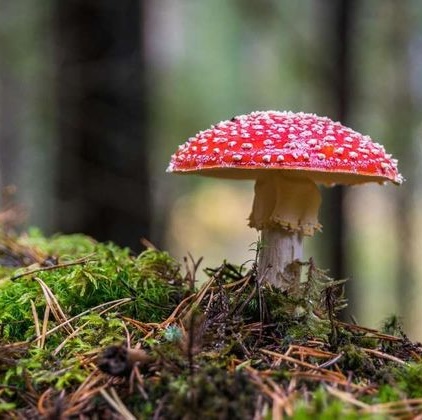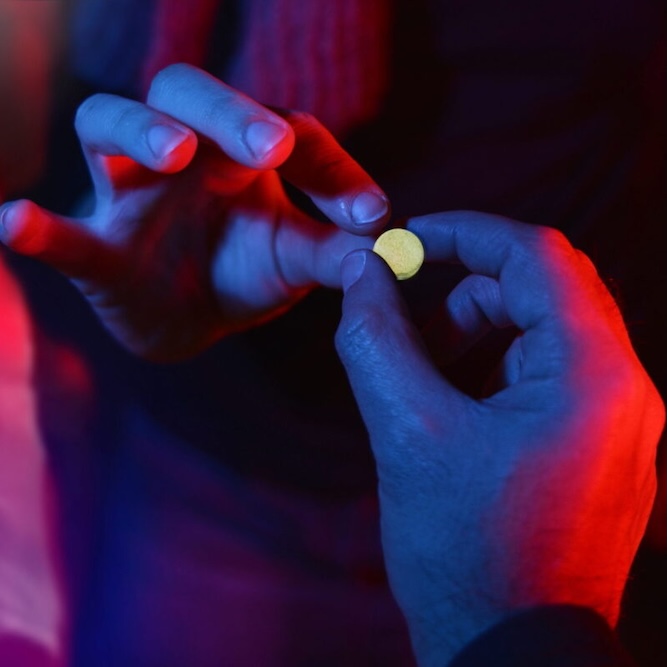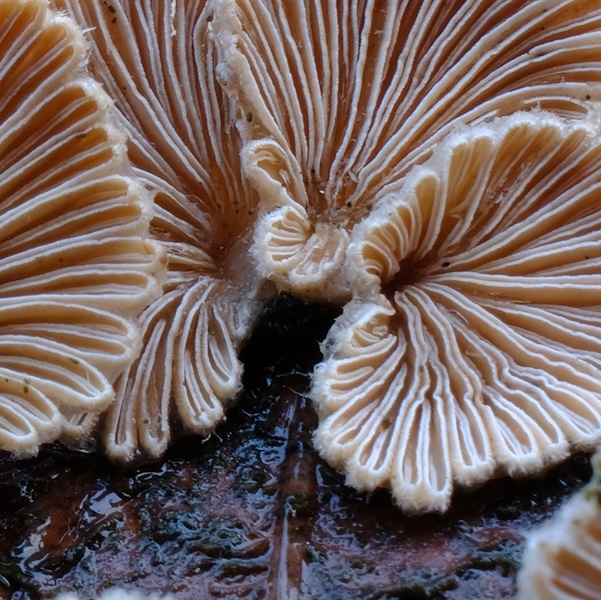It started out as an experiment—one I wasn’t exactly sure would be a great idea. It was a Friday night, and after a long week of work, I was feeling that familiar pull towards a couple of beers to unwind. But I had also recently begun microdosing psilocybin. My schedule had me microdosing on Fridays, and on this particular evening, I figured, “What’s the harm in mixing the two?”
What followed was a strange and uncomfortable experience. At first, everything seemed fine. The beer made me feel loose, like it always did, and the microdose brought that subtle lift in mood and focus that I had come to enjoy. But after an hour or so, I noticed something was off. Instead of feeling relaxed and present, my thoughts began to race. A creeping anxiety started to build, and my body felt jittery, almost like it was caught in a push-pull between two opposing forces.
I wasn’t drunk, but I certainly wasn’t comfortable. As I lay in bed later that night, sleep didn’t come easily. My mind was restless, unable to settle down, and a low-grade nausea set in, making me regret the combination of substances.
That was the night I realized that mixing alcohol and psychedelics, even in small doses, wasn’t a good idea—at least not for me. It was a valuable lesson, and as I’ve come to learn, it’s not uncommon for others to experience similar side effects when combining these two substances.

What happens when you mix microdosing and alcohol?
It turns out, my experience wasn’t unique. There’s limited scientific research specifically on mixing microdoses of psychedelics like psilocybin with alcohol, but anecdotal reports from others who have tried it suggest that the two don’t always play well together.
One study published in the journal Psychopharmacology explored the effects of combining psilocybin and alcohol in rats. The study found that while low doses of psilocybin increased social interaction in rats, the combination of psilocybin with alcohol led to heightened anxiety and impaired motor coordination. Though this study was conducted on animals, it hints at why mixing the two substances might not always lead to a positive experience in humans either.
On a neurochemical level, alcohol is a depressant that affects GABA receptors in the brain, leading to feelings of relaxation and lowered inhibition. Psilocybin, on the other hand, is a psychedelic that primarily affects serotonin receptors, often leading to an enhanced sense of connectedness and introspection. When you mix the two, it’s possible that their opposing effects can clash, resulting in heightened anxiety, nausea, or even paranoia.
For me, the mix of psilocybin and alcohol seemed to produce a kind of mental tug-of-war. On one hand, I felt the usual relaxation that alcohol provides, but on the other hand, the psilocybin seemed to intensify my thoughts and heighten my awareness in a way that wasn’t entirely pleasant when alcohol was also in my system. It was as though my mind and body were receiving conflicting signals, resulting in an uncomfortable state of both heightened awareness and physical sluggishness.
Microdosing vs. alcohol: navigating the balance
After that night, I became more mindful of how I approached microdosing. I decided to avoid alcohol on the days I microdosed, not wanting to risk another uncomfortable experience. And as I delved deeper into the research, it became clear that this was likely the best approach.
While research on microdosing is still emerging, studies have shown some promising benefits. In a 2019 study published in the Journal of Psychopharmacology, researchers found that microdosing psychedelics like LSD and psilocybin could improve mood, increase focus, and reduce symptoms of anxiety and depression. In contrast, alcohol, while enjoyable in the short term, often has the opposite effects when consumed in larger amounts—contributing to anxiety, depression, and impaired cognitive function.
For many people, alcohol serves as a quick way to relax and unwind, especially in social situations. But the problem arises when the relaxing effects of alcohol are accompanied by less desirable consequences: sluggishness, impaired judgment, and of course, the dreaded hangover.
Microdosing, on the other hand, has the potential to boost mood and creativity without those side effects—at least when it’s not mixed with alcohol. Some users report feeling more present, more focused, and even more connected to the people around them. But, as I learned the hard way, it’s crucial to be mindful of the substances you’re mixing with a microdose, as combining them can create unpredictable effects.
The benefits and risks of microdosing and alcohol
So, what should we take away from this? Both microdosing and alcohol have their upsides and downsides, but combining them isn’t always the best idea.
Benefits of microdosing:
- Enhanced creativity and mood: Research shows that microdosing can improve creativity, cognitive performance, and emotional well-being.
- Increased mindfulness: Many users report feeling more present and aware of their surroundings, which can enhance both work and social interactions.
- No hangover: Microdosing, unlike alcohol, doesn’t result in a hangover or the sluggishness that can follow a night of drinking.
Risks of microdosing:
- Unpredictable effects: Microdosing affects people differently, and what works for one person may not work for another. Some may experience heightened anxiety or emotional discomfort.
- Legal issues: Psychedelics are still illegal in many parts of the world, which adds a layer of risk for those who choose to explore microdosing.
- Interactions with other substances: As I learned, mixing microdosing with alcohol or other substances can produce unintended and unpleasant side effects.
Benefits of alcohol:
- Short-term relaxation: Alcohol is an effective way to relax and unwind, especially in social settings, where it can help ease anxiety and foster connection.
- Sociability: Many people find that alcohol lowers their inhibitions and helps them feel more comfortable in social situations.
Risks of alcohol:
- Health risks: Excessive alcohol consumption is linked to a variety of health problems, including liver disease, cardiovascular issues, and mental health disorders.
- Addiction potential: Alcohol has a well-documented potential for abuse and dependency, which can have far-reaching effects on an individual’s life.
Hangovers and mental fog: The aftermath of alcohol consumption often includes headaches, dehydration, and impaired cognitive function.

Tips for navigating microdosing and alcohol
- Avoid mixing substances: If you’re experimenting with microdosing, consider avoiding alcohol on those days. Pay attention to how you feel and let your body adjust to the subtle effects of the microdose without the added complication of alcohol.
- Start small: Whether you’re new to microdosing or looking to reduce your alcohol intake, start small. Reflect on how each substance affects your mood, creativity, and overall well-being.
- Set clear intentions: Why are you choosing to microdose or drink alcohol? Is it to relax, connect, or enhance your creativity? Understanding your reasons can help guide your choices and prevent unintended side effects.
- Listen to your body: If something feels off—whether you’re microdosing, drinking alcohol, or doing both—pay attention to that feeling. Your body often knows what’s best for you.
Conclusion: finding what works for you
As I reflect on my journey, it’s clear that while both alcohol and microdosing have their places in our lives, they don’t always mix well. For me, microdosing has provided a way to explore creativity and mindfulness in a way that alcohol never could. But that’s not to say alcohol doesn’t have its role—it’s all about finding the balance that works for you.
If you’re curious about microdosing or thinking about cutting back on alcohol, I encourage you to approach both with curiosity and care. Pay attention to how these substances make you feel, and don’t be afraid to adjust your habits accordingly.




